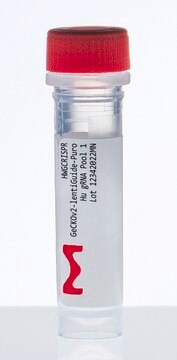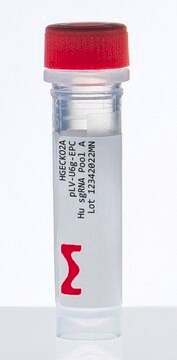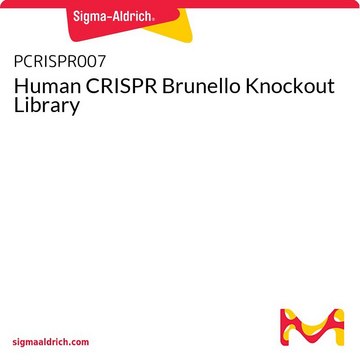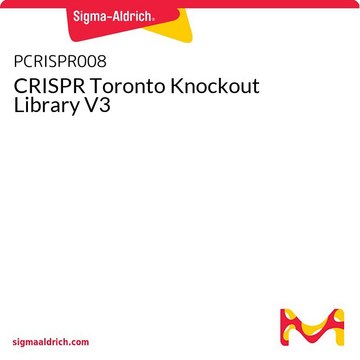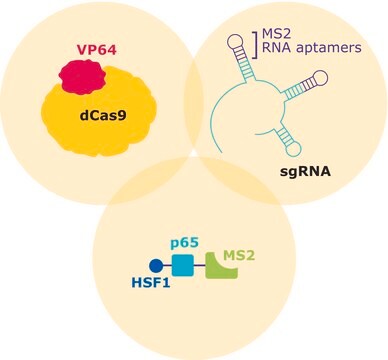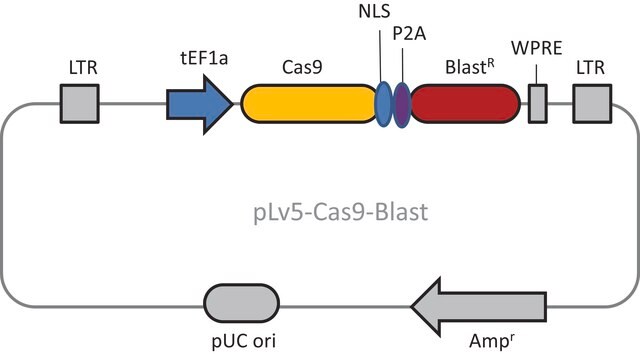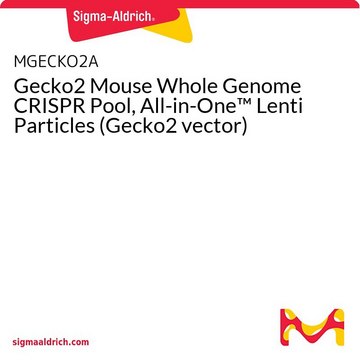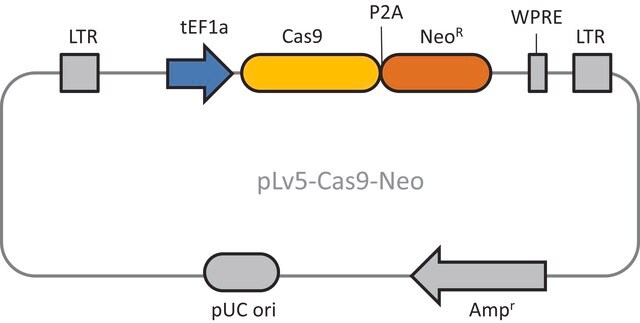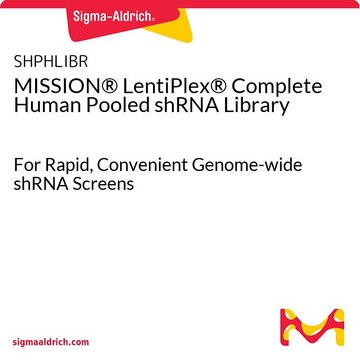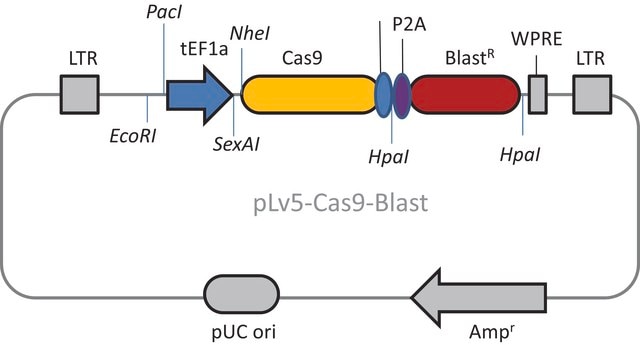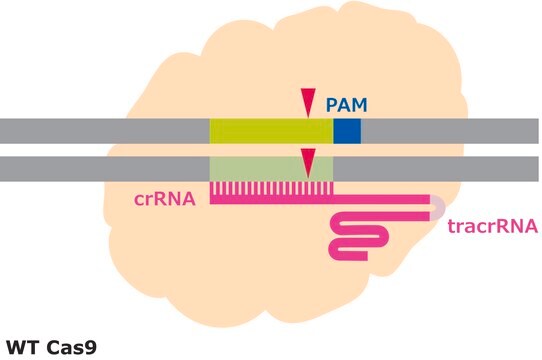HGECKO2G
Gecko2 Human Whole Genome CRISPR Pool, gRNA Only Lenti Particles (Gecko2 vector)
About This Item
Empfohlene Produkte
Verpackung
pkg of 8x25 μL (vials)
Qualitätsniveau
Konzentration
5x108 VP/ml (via p24 assay)
Anwendung(en)
CRISPR
Versandbedingung
dry ice
Lagertemp.
−70°C
Verwandte Kategorien
Allgemeine Beschreibung
Anwendung
Leistungsmerkmale und Vorteile
- Use CRISPR nucleases to knockout protein-coding genes to assess their function
- Efficiently screen the whole human genome (16,000+ genes) at the bench-top without robotics or specialized equipment
- Numerous built-in enrichment and depletion controls allow researchers to confidently gauge the success of their pooled screening experiments
- Lentiviral CRISPRs can infect a broad variety of mammalian cells by transducing a single guide RNA (sgRNA) to a Cas9-expressing human cell line to facilitate gene knockout for screening applications.
- Use the dual vector system for the human GeCKO version 2 libraries for human cell lines that have Cas9 already integrated into the genome.
- Use puromycin gRNA selection after transduction.
Angaben zur Herstellung
Sonstige Hinweise
Rechtliche Hinweise
Lagerklassenschlüssel
12 - Non Combustible Liquids
WGK
WGK 3
Flammpunkt (°F)
Not applicable
Flammpunkt (°C)
Not applicable
Analysenzertifikate (COA)
Suchen Sie nach Analysenzertifikate (COA), indem Sie die Lot-/Chargennummer des Produkts eingeben. Lot- und Chargennummern sind auf dem Produktetikett hinter den Wörtern ‘Lot’ oder ‘Batch’ (Lot oder Charge) zu finden.
Besitzen Sie dieses Produkt bereits?
In der Dokumentenbibliothek finden Sie die Dokumentation zu den Produkten, die Sie kürzlich erworben haben.
Kunden haben sich ebenfalls angesehen
Artikel
Our lentiviral vector systems are developed with enhanced safety features. Numerous precautions are in place in the design of our lentiviruses to prevent replication. Good handling practices are a must.
Successful targeting relies on optimizing key sensitive steps in the process, including lentiviral transduction. Below are some helpful handling and titration tips from our R&D lentiviral experts.
Protokolle
You are not alone designing successful CRISPR, RNAi, and ORF experiments. Sigma-Aldrich was the first company to commercially offer lentivirus versions of targeted genome modification technologies and has the expertise and commitment to support new generations of scientists.
FACS (Fluorescence-Activated Cell Sorting) provides a method for sorting a mixed population of cells into two or more groups, one cell at a time, based on the specific light scattering and fluorescence of each cell. This method provides fast, objective, and quantitative recording of fluorescent signals from individual cells.
Unser Team von Wissenschaftlern verfügt über Erfahrung in allen Forschungsbereichen einschließlich Life Science, Materialwissenschaften, chemischer Synthese, Chromatographie, Analytik und vielen mehr..
Setzen Sie sich mit dem technischen Dienst in Verbindung.